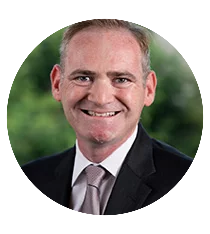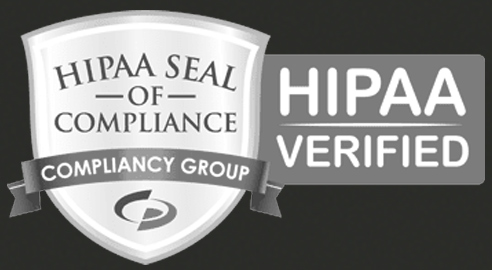
How to improve your practice’s productivity with better communication
Effective communication is crucial in any workplace, particularly in a medical practice where clear and efficient communication is necessary to provide quality care to patients.
Poor communication can result in decreased staff productivity, misinterpreted instructions and missed deadlines. This article highlights some common communication issues in the workplace and provides tips on how to avoid them. It also suggests a daily, weekly, monthly and quarterly meeting rhythm for a private ophthalmology practice, focusing on growing the number of new patients, delivering excellent customer service and promoting innovation.
With the latest types of intra-office communication methods included, this article aims to help medical practices improve communication and increase productivity. Read on to learn more about communicating effectively in a growth-oriented medical practice.
We’ve previously discussed how vital communication is within an organisation and how poor communication by managers and other senior staff can be a major cause of low staff morale.
There are other negative effects of poor communication which can have serious consequences for your business, including reducing staff productivity.
Staff productivity is directly linked to overall profits, so putting in the time to ensure it does not drop can be well worth the effort.
Examples of poor communication at work
In our previous article, we mentioned how important it was that staff of all levels feel that they are being listened to and kept in the loop about broader company issues.
This is one example where many companies can improve their communication, but there are many other possibilities:
Vague instructions and deadlines
When deadlines are vague (“Just get it to me ASAP!”) or non-existent, this creates a communication problem between manager and employee and can potentially damage the working relationship and impact productivity.
It’s essential to give clear deadlines when assigning work, and always a good idea to check in ahead of schedule to make sure there are no issues that may prevent the deadline from being met.
When employees are not given clear instructions, they will waste time trying to figure out what they are supposed to be doing. A survey conducted by HR magazine revealed that participants wasted an estimated 40 minutes every day due to unclear instructions.
If projects are not completed within the assigned timeframe, either due to unclear deadlines or other reasons, this can also be costly. Poor communication is cited as the reason behind overdue projects in 28% of cases.
Problems with Email and Instant Messaging
Email and instant messaging can make communicating quick and easy, but they also have communication problems.
You may assume that a colleague has read your message if you don’t hear from them, but it may have been accidentally deleted or simply drifted to the bottom of their inbox.
If your message includes essential information or actions, always ask for a quick reply or confirmation to know it’s been received.
Emails and instant messages are also a constant source of interruption in an employee’s day and can be a huge distraction that eats into productivity. It’s common in an office setting for several messages to be sent back and forth when in many cases, it would have been quicker to pick up the phone or have a face-to-face conversation simply.
Giving important information in an informal setting
It’s all too easy to grab a colleague in the hallway or send a quick message when they’re on the go. Still, the information given in these instances is quickly forgotten.
If you need to relay important information, it’s best to schedule a meeting or make a phone call.
If you do engage in hallway conversations or instant messages, make sure to follow up later to check you were understood and that the person you were talking to hasn’t completely forgotten your encounter.
When meetings are arranged, it’s important to have a proper agenda to ensure that all items are covered and that time is not wasted. At the end of each meeting, every attendee should have a plan and be clear on what their next course of action is.
An Australian study of 5,000 executives found that 50% did not listen effectively to others in meetings, and 48% left the meeting without a plan of what to do next.
Good managers use excellent communication and listening skills to motivate their employees and inspire maximum productivity.
The ideal medical practice meeting rhythm
It’s important to keep in mind that communication should be not only effective but also timely and consistent.
A regular meeting rhythm can help with that. In a private ophthalmology practice, where the goals are to grow the number of new patients, deliver excellent customer service, and spend 10% of the time on innovation, a suggested meeting rhythm could be:
Daily:
- A short check-in meeting to review the day’s schedule and ensure everyone is on the same page.
Weekly:
- A team meeting to review progress on goals and identify areas for improvement
- A departmental meeting to discuss specific tasks and initiatives related to customer service and innovation
- One-on-one check-ins with direct reports to provide feedback and support
Monthly:
- A management meeting to review the practice’s overall performance and set goals for the next month
- A training session for staff to improve their communication and collaboration skills
Quarterly:
- An all-hands meeting to review the practice’s achievements over the past quarter and communicate plans for the future
- A brainstorming session to generate new ideas for improving customer service and growing new patients
In addition to these in-person meetings, there are also a variety of intra-office communication tools available, including instant messaging, video conferencing, and project management platforms that can facilitate effective communication within the practice.
It’s crucial to adopt a communication strategy that suits the practice’s needs and ensures everyone is informed and engaged. By implementing a regular meeting rhythm and utilising technology effectively, the private ophthalmology practice can improve communication, boost staff productivity, and achieve its goals.
In conclusion, effective communication is vital in a growth-oriented medical practice to ensure high-quality patient care and staff productivity. This article has discussed common communication issues in the workplace, such as unclear instructions and deadlines, problems with email, and giving important information in an informal setting, and has provided tips on how to avoid them.
Additionally, a suggested meeting rhythm for a private ophthalmology practice has been outlined to help promote growth, customer service and innovation. By implementing these tips and following a structured meeting rhythm, medical practices can improve communication and increase efficiency. If you would like to learn more about how to communicate effectively in your medical practice, book a complimentary compatibility call to discuss your specific needs and find out how to optimise your practice.
NOTE: The best way to answer that nagging question about practice growth or marketing or patient volume in the back of your mind is to book a free 15-minute compatibility call. Get some options and go away with a clear idea of what’s possible.
About the author

Rod Solar
Founder & Fractional CMO
Rod co-founded LiveseySolar and acts as a Fractional CMO for our customers. He’s on a mission to help transform the lives of 10,000 people through vision correction surgery by 2024. To achieve that, he inspires his customers to make confident decisions that will help 50,000 people take the first step towards vision correction.
Related Posts
Meet our Founders

Rod Solar
Founder & Scalable Business Advisor
Rod Solar is a co-founder of LiveseySolar and a Scalable Business Advisor / fCMO for our customers. Rod mentors and coaches CEOs/Founders and their leadership teams to triple their sales, double their profit, and achieve their “ideal exit”.
LiveseySolar completely transformed the way we were approaching this… We’ve gone from having just the dream of having a practice to having a practice up and running with people making inquiries and booking for procedures… It’s extremely pleasing. We feel lucky we connected with LiveseySolar.
— Dr Matthew Russell, MBChB, FRANZCO, specialist ophthalmic surgeon and founder of VSON and OKKO

Laura Livesey
Founder & CEO
Laura Livesey is the co-founder & CEO of LiveseySolar. She has developed powerful refractive surgery marketing systems that increase patient volumes and profits for doctors, clinics, and hospitals, since 1997.
Rod and Laura know as much about marketing surgery to patients as I know about performing it. They are an expert in the field of laser eye surgery marketing. They know this industry inside out. I believe that they could help many companies in a variety of areas including marketing materials, sales training and marketing support for doctors.
— Prof. Dan Reinstein, MD MA FRSC DABO, founder of the London Vision Clinic, UK











